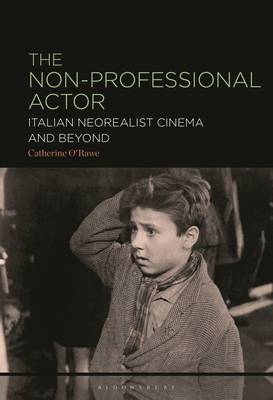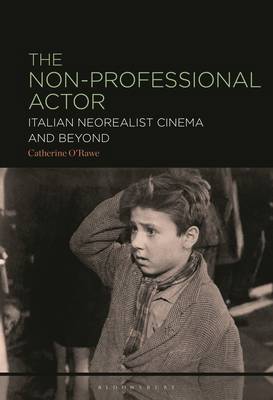
- Afhalen na 1 uur in een winkel met voorraad
- Gratis thuislevering in België vanaf € 30
- Ruim aanbod met 7 miljoen producten
- Afhalen na 1 uur in een winkel met voorraad
- Gratis thuislevering in België vanaf € 30
- Ruim aanbod met 7 miljoen producten
Zoeken
€ 203,95
+ 407 punten
Omschrijving
Provides the first critical overview of acting, stardom, and performance in post-war Italian film (1945-54), with special attention to the figure of the non-professional actor, who looms large in neorealist filmmaking.
Italian post-war cinema has been widely celebrated by critics and scholars: films such as Bicycle Thieves (De Sica, 1948) and Paisan (Rossellini, 1946) remain globally influential, particularly for their use of non-professional actors. This period of regeneration of Italian cinema initiated the boom in cinemagoing that made cinema an important vector of national and gender identity for audiences. The book addresses the casting, performance, and labour of non-professional actors, particularly children, their cultural and economic value to cinema, and how their use brought ideas of the ordinary into the discourse of stars as extraordinary. Relatedly, O'Rawe discusses critical and press discourses around acting, performance, and stardom, often focused on the 'crisis' of acting connected to the rise of non-professionals and the girls (like Sophia Loren) who found sudden cinematic fame via beauty contests.Specificaties
Betrokkenen
- Auteur(s):
- Uitgeverij:
Inhoud
- Aantal bladzijden:
- 264
- Taal:
- Engels
Eigenschappen
- Productcode (EAN):
- 9781501394355
- Verschijningsdatum:
- 14/12/2023
- Uitvoering:
- Hardcover
- Formaat:
- Genaaid
- Afmetingen:
- 152 mm x 229 mm
- Gewicht:
- 517 g

Alleen bij Standaard Boekhandel
+ 407 punten op je klantenkaart van Standaard Boekhandel
Beoordelingen
We publiceren alleen reviews die voldoen aan de voorwaarden voor reviews. Bekijk onze voorwaarden voor reviews.











